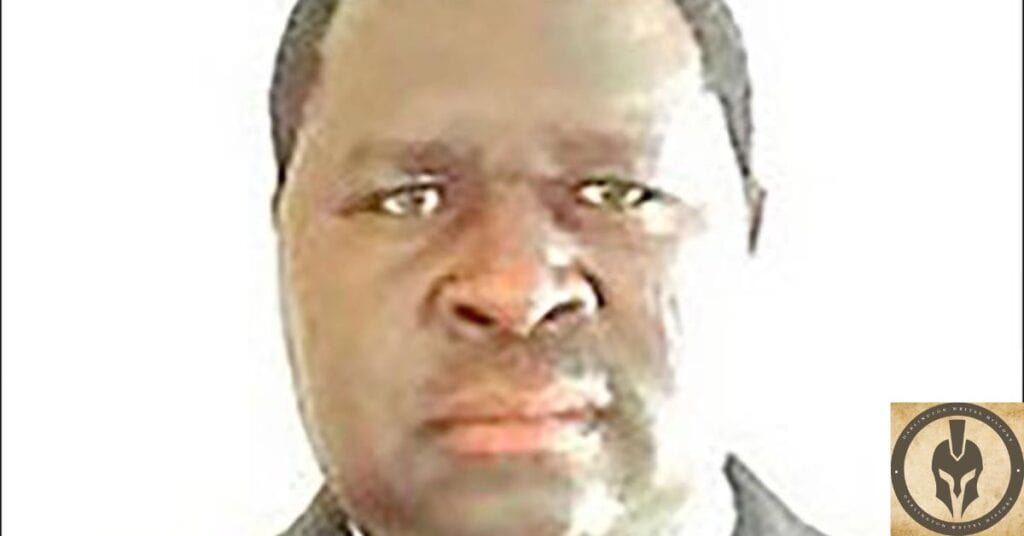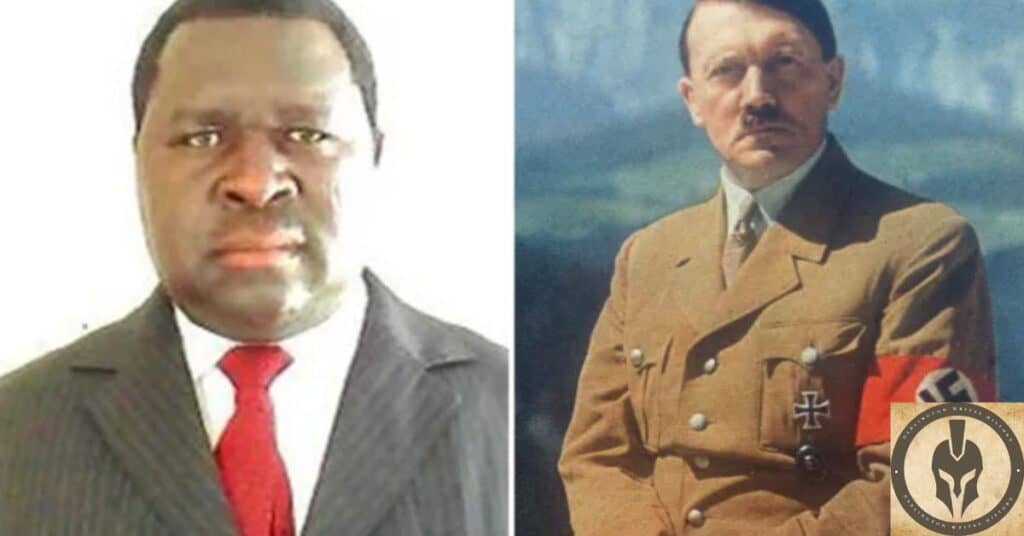Adolf Hitler Uunona is a Namibian politician whose name has garnered significant attention due to its striking similarity to one of history’s most infamous figures, Adolf Hitler. Despite being a dedicated public servant with a focus on local governance, Uunona’s name has sparked controversy, drawing both national and international media coverage. The unusual nature of his name raises questions about the lasting impact of history on individual identity and the complexities that arise when a name carries such heavy historical baggage. This post is about the story behind Uunona’s name, the reactions it has elicited, and the broader cultural and historical implications.
Adolf Hitler Uunona

Adolf Hitler Uunona is a Namibian politician serving as a regional councilor in the Oshana region of northern Namibia. He represents the South West Africa People’s Organization (SWAPO), the dominant political party in Namibia that played a crucial role in the country’s independence from South African rule.
Uunona has been actively involved in local government, where he has focused on improving the living conditions of his constituents. His work includes advocating for better infrastructure, access to clean water, and improved healthcare services in the region. He is known for his dedication to community development and his efforts to address the needs of the underserved population in his jurisdiction.
Despite his unusual name, Uunona’s political platform is not controversial. He is aligned with SWAPO’s broader goals of social justice, economic development, and national unity. His policies and initiatives reflect a commitment to advancing these principles at the local level, where he has earned respect for his hands-on approach and responsiveness to the community’s concerns.
The Controversy Surrounding His Name
Adolf Hitler Uunona’s name has its roots in Namibia’s complex history, particularly during the period of German colonization in the late 19th and early 20th centuries. Namibia, then known as German South West Africa, was a German colony from 1884 to 1915 when South African forces took cotrol during world war I. During this time, many Namibians adopted German names, often without understanding their full implications. Uunona’s father, who named him, likely chose “Adolf Hitler” without fully grasping the atrocities committed by the Nazi leader.
The name “Adolf Hitler” is synonymous with the horrors of World War II and the Holocaust, making it one of the most infamous names in history. For many, hearing this name evokes strong emotions tied to the atrocities committed by Nazi Germany. This association has caused a stir when it appears in a modern political context, even in a country far removed from Europe.
Public reactions to Uunona’s name have varied. Locally, in Namibia, many understand the historical context and may view it as an unfortunate but unintentional relic of the past. Internationally, however, the name has drawn considerable media attention, with many people shocked or confused by its use. Some have expressed outrage or disbelief, while others have seen it as a curious footnote in global politics. Uunona has addressed the controversy, clarifying that he has no connection to the Nazi leader and that his father likely had no understanding of the name’s historical significance. Despite the uproar, Uunona has continued his political career, focusing on his work rather than the controversy surrounding his name.
Uunona’s Response to the Controversy
Adolf Hitler Uunona has addressed the controversy surrounding his name in various interviews and public statements. He has consistently emphasized that his name, though provocative, has no connection to the notorious Nazi leader. In an interview with a German newspaper, Uunona explained that his father named him “Adolf Hitler” without fully understanding the historical implications. According to Uunona, his father likely saw the name as a symbol of power or significance, without associating it with the atrocities committed by the Nazi regime.
Uunona has expressed that he personally rejects the ideology associated with Adolf Hitler and views the name as nothing more than a part of his identity. He has stated that he has “nothing to do with” Nazi ideology and that his focus has always been on serving his community and improving the lives of his constituents.
Despite the initial shock and media attention, Uunona has managed to navigate his political career with resilience. He has focused on his work, emphasizing that his name does not define his actions or beliefs. By addressing the controversy head-on and clarifying the circumstances behind his name, Uunona has been able to continue his public service without letting the name overshadow his achievements. His straightforward approach and dedication to his role have allowed him to maintain the respect of his community and continue his work in local government.
Implications
The broader implications of having a name associated with a notorious historical figure like Adolf Hitler are profound. Such a name can shape perceptions before a person has a chance to define themselves through their actions. It can evoke strong emotions, judgments, and biases, often overshadowing the individual’s true character and achievements. This is particularly challenging for those who, like Adolf Hitler Uunona, inherited the name without any connection to the dark legacy it carries.
The balance between cultural identity, personal history, and public perception is delicate. For Uunona, his name is a part of his identity, a legacy from his father, and a reflection of Namibia’s complex colonial history. Yet, it also places him at the center of public scrutiny, both locally and globally. While he views his name as a simple aspect of his identity, others see it as a provocative symbol, loaded with historical weight. This dichotomy illustrates the challenges individuals face when their personal history intersects with widely recognized and emotionally charged historical narratives.
This case also reveals how history’s shadow can persist in modern times. Names, symbols, and legacies from the past continue to influence contemporary society, sometimes in unexpected ways. Uunona’s experience highlights how historical figures and events, even those from distant lands and times, can still resonate powerfully today. It also underscores the importance of context and understanding in navigating these legacies. In a world where global communication can amplify local issues, the persistence of history serves as both a reminder and a challenge: to reconcile the past with the present, and to recognize that identity is often shaped by forces far beyond an individual’s control.
Conclusion
In conclusion, the story of Adolf Hitler Uunona offers a compelling exploration of the intersection between identity and historical legacy. Uunona’s name, rooted in Namibia’s German colonial past, has sparked controversy due to its association with the infamous Nazi leader. Despite the unintended implications of his name, Uunona has navigated his political career with resilience and clarity, focusing on community service rather than the historical weight of his name.
This case underscores the complexities of how names and identities are shaped by historical contexts. It highlights the challenges of balancing personal history with public perception and reveals how historical legacies can persist and influence modern lives. Uunona’s experience serves as a reminder of the intricate ways history and identity intertwine, often in ways that are beyond an individual’s control.
Ultimately, Uunona’s story is a testament to the complex interplay between history and identity. It calls for a deeper consideration of how we understand and engage with the past, and how we allow it to inform—but not dictate—our perceptions of the present.

